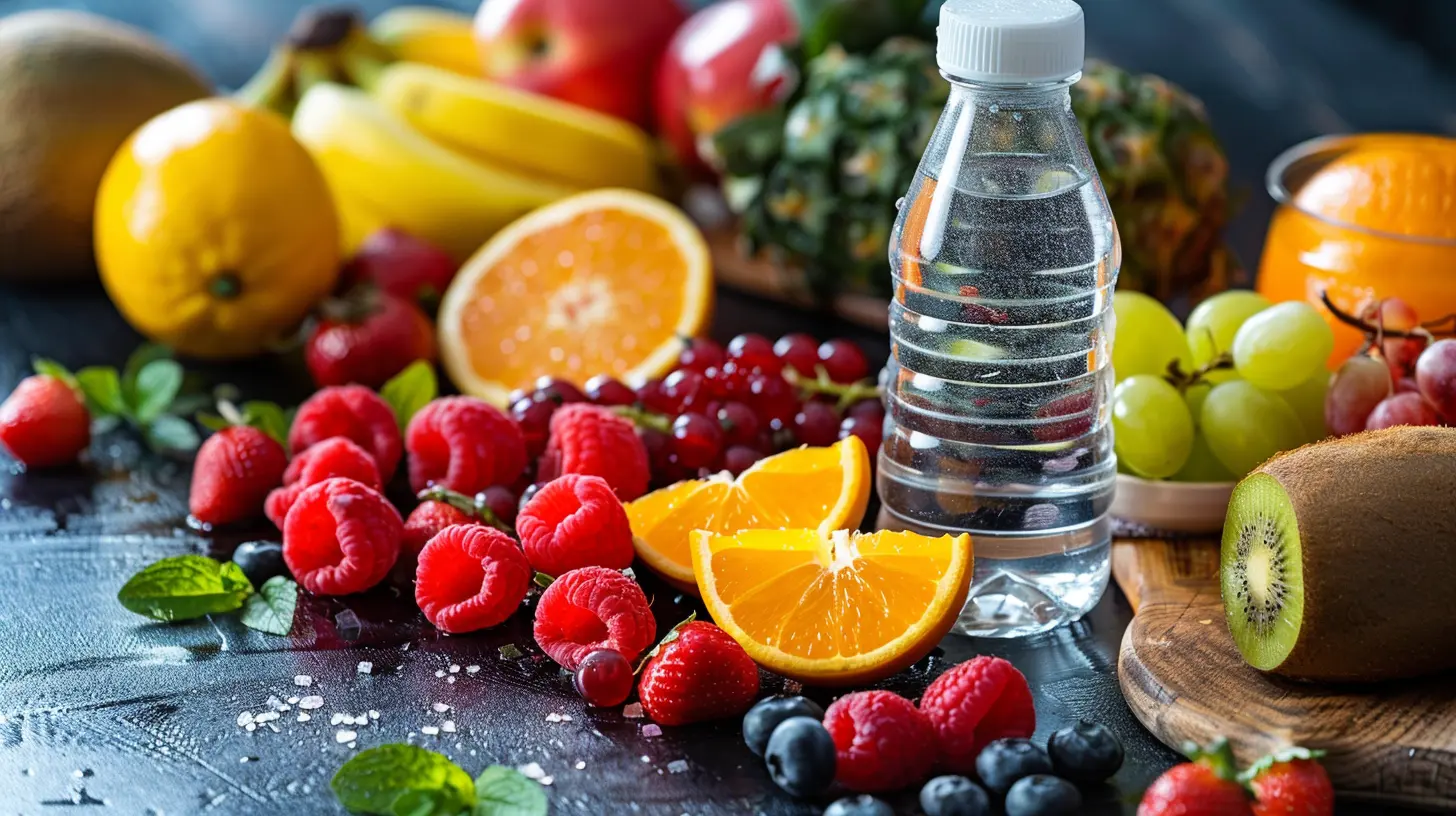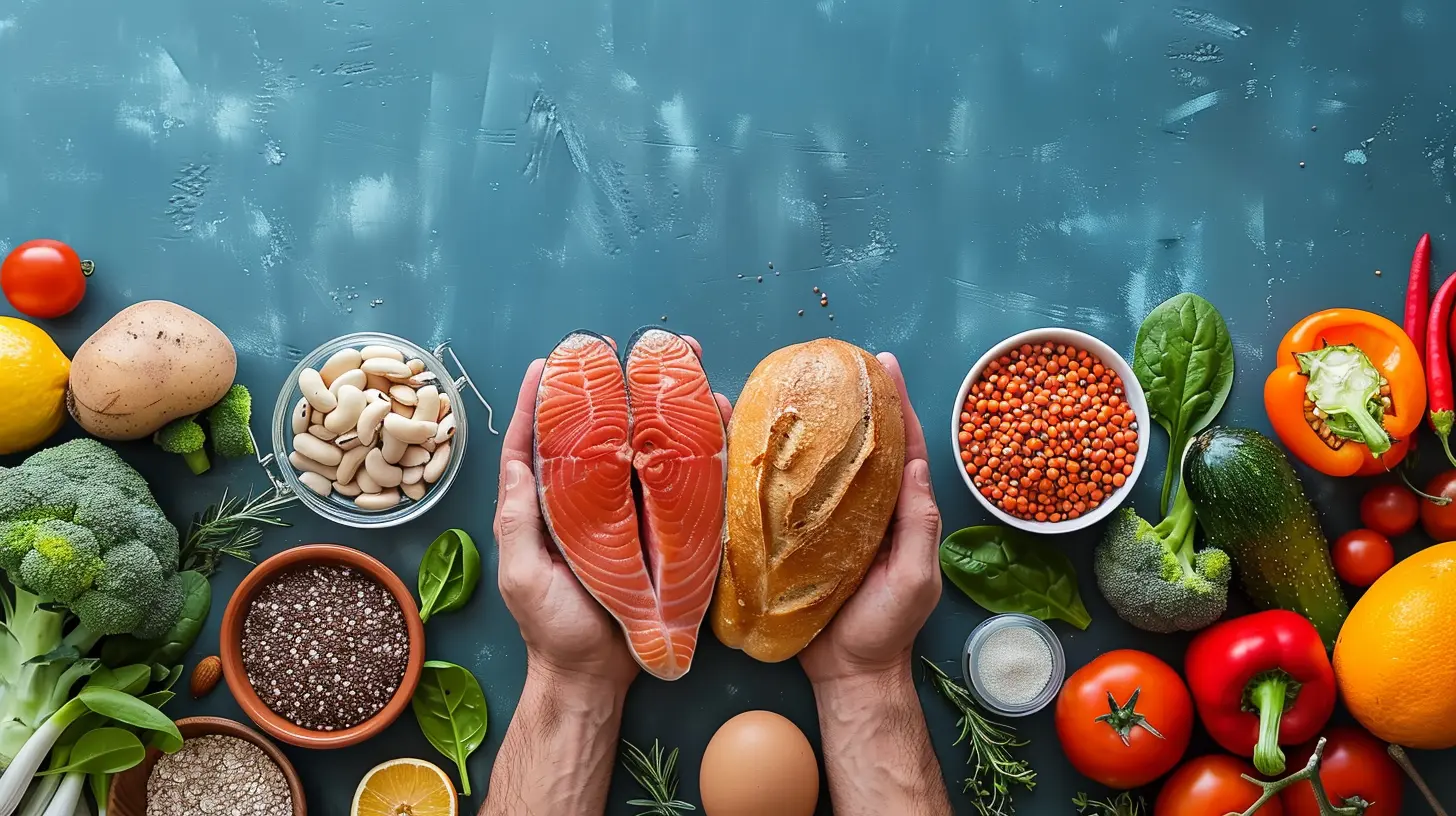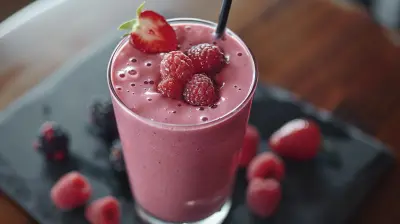Nutrition Tips to Enhance Your Endurance Training
18 October 2025
Endurance training is about more than just pushing your limits—fueling your body the right way is just as important as the workout itself. Whether you're a runner, cyclist, swimmer, or all-around fitness enthusiast, the food you eat plays a major role in your performance, stamina, and recovery.
Think of your body as a high-performance car—would you fuel it with low-quality gas and expect it to run efficiently? Of course not! The same applies to endurance training. To keep going strong and prevent burnout, you need to focus on the right nutrition.
So, what should you eat to maximize your endurance? Let's break it down into simple, effective tips that will help you power through your workouts and recover like a champion. 
1. Prioritize Carbohydrates—Your Primary Fuel Source
Carbohydrates are the ultimate energy source for endurance athletes. When you train for long periods, your muscles rely on stored glycogen (which comes from carbs) to keep moving.Best Carbohydrate Choices for Endurance Training:
- Whole grains (brown rice, quinoa, oats)- Starchy vegetables (sweet potatoes, pumpkins, squash)
- Fruits (bananas, apples, berries)
- Legumes (lentils, chickpeas, black beans)
Not all carbs are created equal. Aim for complex carbohydrates that provide a steady release of energy rather than simple sugars that cause quick spikes and crashes.
Pre-Workout Carb Loading:
Before a long workout, a carb-rich meal can help top off your glycogen stores. Try eating meals like:- A bowl of oatmeal with banana and peanut butter
- Whole grain toast with almond butter and honey
- Brown rice with grilled chicken and steamed veggies
Fueling up properly before training prevents early fatigue and keeps you performing at your best. 
2. Don't Neglect Protein—Essential for Muscle Repair
While carbs power your workout, protein helps repair and build muscle. Endurance training puts significant stress on your muscles, and without enough protein, you may experience longer recovery times and increased soreness.Best Protein Sources for Endurance Athletes:
- Lean meats (chicken, turkey, fish)- Eggs and dairy products (Greek yogurt, cottage cheese)
- Plant-based proteins (tofu, tempeh, lentils)
- Protein powders (whey, pea, or hemp protein)
Post-Workout Protein Intake:
Consuming protein within 30-60 minutes after exercise optimizes muscle repair. A protein shake, Greek yogurt with nuts, or a chicken and quinoa salad are all great recovery options.
3. Hydration Matters More Than You Think
Dehydration is one of the quickest ways to derail endurance performance. Losing just 2% of your body weight in fluids can negatively impact your strength, stamina, and focus.Hydration Strategies for Endurance Training:
- Drink consistently throughout the day, not just during workouts.- Monitor urine color—pale yellow is ideal, dark yellow indicates dehydration.
- Include electrolytes (sodium, potassium, magnesium) to maintain balance.
- Coconut water, electrolyte tablets, or sports drinks can help replenish lost minerals.
A good rule of thumb is to drink about 16-20 ounces of water two hours before training, then sip 4-8 ounces every 15-20 minutes during prolonged exercise sessions. 
4. Don't Fear Healthy Fats—They Provide Long-Lasting Energy
Fats have been unfairly demonized over the years, but when it comes to endurance, they play a crucial role. Healthy fats provide a steady source of energy, especially during long-duration training.Best Sources of Healthy Fats:
- Avocados- Nuts and seeds (almonds, walnuts, chia seeds, flaxseeds)
- Olive oil and coconut oil
- Fatty fish (salmon, mackerel, sardines)
Fats digest more slowly than carbohydrates, so they're excellent for sustaining energy levels during extended workouts. Adding a handful of nuts or some avocado to your pre-workout meal can keep you going strong.
5. Timing is Everything—Optimize Your Meal Schedule
When you eat is just as important as what you eat. Timing your nutrition strategically can enhance your performance and recovery.Ideal Meal Timings for Endurance Training:
Pre-workout: 1-3 hours before training → Focus on carbs with some protein.During workout (if over 90 minutes): Small carbs like a banana, energy gels, or sports drinks.
Post-workout: Within 60 minutes after training → Protein + carbs for recovery.
Proper nutrient timing ensures you’re fueled properly and recovering effectively for your next session.
6. Micronutrients Matter Too—Don't Forget Vitamins & Minerals
Endurance athletes usually focus on macros (carbs, protein, fats), but micronutrients—vitamins and minerals—are equally important for performance.Key Micronutrients for Endurance Training:
- Iron: Helps transport oxygen in the blood (found in spinach, red meat, lentils).- Magnesium: Supports muscle function and prevents cramps (found in nuts, seeds, dark chocolate).
- Vitamin C: Aids in recovery and boosts immunity (found in oranges, peppers, broccoli).
- Calcium: Strengthens bones and prevents injuries (found in dairy, leafy greens, almonds).
A balanced diet with a variety of colorful fruits and vegetables ensures you're getting enough vitamins and minerals to support endurance.
7. Recovery Nutrition—Don't Neglect the Post-Workout Meal
Recovery is when your body repairs, rebuilds, and gets stronger. What you eat after training directly impacts how well you recover.Best Recovery Foods:
- A protein smoothie with banana, protein powder, and almond milk- Greek yogurt with honey and mixed berries
- A turkey and avocado sandwich on whole grain bread
- Quinoa with roasted salmon and steamed greens
Replenishing glycogen stores and providing protein for muscle repair helps speed up recovery and reduce soreness.
8. Supplement Wisely—But Don’t Rely on Them
A well-balanced diet should always be your primary source of nutrients, but sometimes supplements can provide an extra boost.Beneficial Supplements for Endurance Athletes:
- Electrolytes: Essential during long or intense training sessions.- BCAAs (Branched-Chain Amino Acids): Can help reduce muscle soreness.
- Caffeine: Boosts endurance and focus when taken in moderation.
- Omega-3s: Reduce inflammation and support joint health.
While supplements can be useful, they should never replace real, nutrient-dense foods.
Final Thoughts
Endurance training isn't just about logging miles or spending hours in the gym—what you eat is just as important as how you train. A well-rounded diet packed with quality carbs, lean proteins, healthy fats, and essential vitamins is the foundation for peak performance.Want to go the extra mile (literally)? Pay attention to hydration, recovery meals, and strategic supplementation.
Your nutrition is the fuel that determines how far, fast, and strong you can go. Give your body what it needs, and it will reward you with endurance, power, and resilience!
all images in this post were generated using AI tools
Category:
FitnessAuthor:

Jackson Mahoney
Discussion
rate this article
1 comments
Jacob Hudson
Fuel your journey with nature's best, Colors on your plate, a vibrant quest. Nourish your body, let energy flow, Endurance blossoms, watch your spirit grow.
October 30, 2025 at 5:03 AM

Jackson Mahoney
Thank you for the inspiring words! Emphasizing natural, vibrant foods is key to fueling endurance and enhancing overall performance. Let's embrace this journey together!


